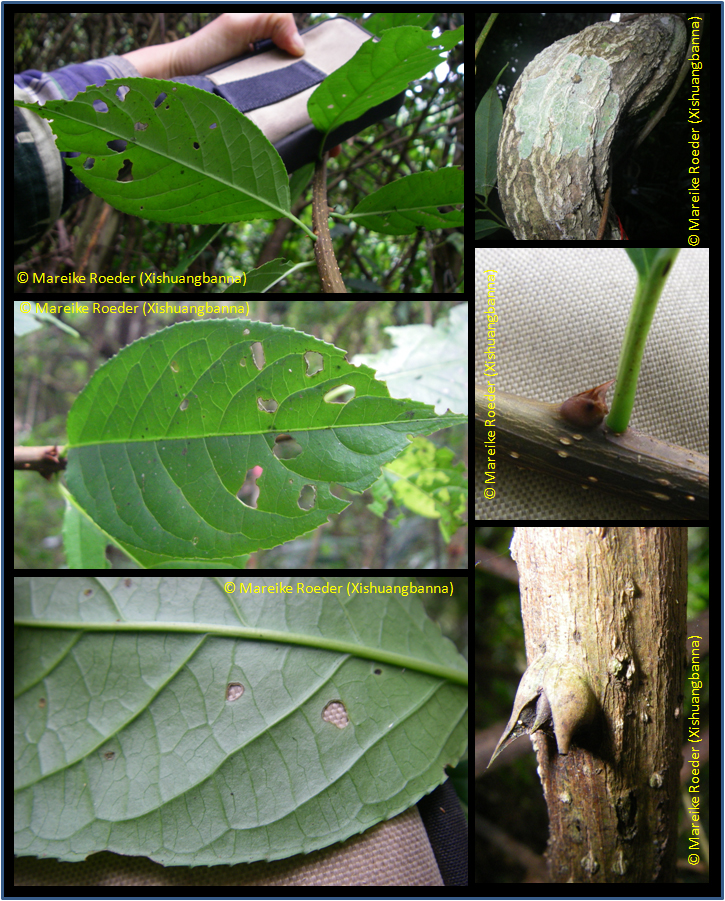Celastrus paniculatus Willd., Sp. Pl. 1: 1125 (1798)
Species name meaning 'branched', referring to the inflorescence.Synonyms
Catha paniculata Scheidw.
Ceanothus paniculatus Roth
Celastrus alnifolius D.Don
Celastrus dependens Wallich
Celastrus euphlebiphyllus (Hayata) Makino & Nemoto
Celastrus euphlebiphyllus (Hayata) Kaneh.
Celastrus metzianus Turcz.
Celastrus nutans Roxb.
Celastrus paniculatus subsp. multiflorus Ding Hou
Celastrus paniculatus subsp. serratus (Blanco) Ding Hou
Celastrus pubescens Wall. [Invalid]
Celastrus rothianus Schult.
Diosma serrata Blanco
Euonymus euphlebiphyllus Hayata
Scutia paniculata G.Don
Description
Large deciduous twining shrubs, stem up to 23 cm in diam.; bark pale brown, rough and cracked,
exfoliating in small scales; branchlets pubescent or glabrous, with prominent elliptic lenticels;
axillary buds small, 1-2 mm, triangular. Petiole 6-16 mm; leaf blade elliptic, oblong, rectangular,
ovate, or obovate to suborbicular, 5-10 x 2.5-5 cm, glabrous, base cuneate, margin serrate, apex
mucronate to acuminate; secondary veins 5-7 pairs, rarely abaxially pubescent at axil of veins.
Thyrses terminal, 5-10 cm, 1- or 2-ramous; rachis and pedicels occasionally with short tomentum;
pedicels 3-6 mm. Flowers greenish, 5-merous, dioecious, 2-3 กม 1.2-1.8 mm; sepals free, imbricate,
semiorbicular, ciliate; petals oblong to obovate-rectangular. Disk membranous, cupulate, slightly
5-lobed. Stamens ca. 3 mm, inserted on margin of disk. Ovary globose. Capsule 1-1.3 cm in diam.,
depressed, globose, 3-valved, bright yellow, 3-6-seeded. Seeds elliptic, 3.5-5.5 x 2-5 mm; aril
orange-red. [from Flora of China]
Ecology
Forest slopes; up to 2000 m elevation.
Uses
Seed oiliness in this species is more than 50%. It is used for making lamp oil and soap in Yunnan.
Many pharmacological studies deal with its effects on the central nervous system and the tranquilizing
property of the alkaloidal fractions of the oil.
Distribution
From India to Australia and western Pacific.
Local names
China: deng you teng.
English: black oil plant, climbing staff tree, intellect tree.
Hindi: Mal-kangani.
Sanskrit: jyotishmati.
